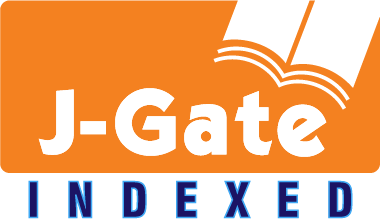A training method tool in the training and development function of HRM: Metaverse
DOI:
https://doi.org/10.26809/joa.1994Keywords:
Metaverse, Education and Development, Virtual World, TechnologyAbstract
Technology has opened the door to a new parallel universe by taking human beings further than their own speed. Although this universe, called the metaverse, was used for gaming at first, it started to show itself in the business world for trade and economic purposes and even in the field of education. In this study, it is aimed to contribute to the literature by revealing the advantages and disadvantages of using the metaverse universe as an training method in the training and development process. Since the type of the article is a descriptive article, a literature-based study was conducted. So, training and development studies with metaverse in the world and in Turkey were examined and tried to be explained with examples in practice. As a result of this study, it was concluded that the metaverse universe has both advantages and disadvantages in education processes.
Downloads
References
AGGARWAL, R., & SİNGHAL, A. (2019). Augmented Reality and its effect on olur life. In 2019 9th International Conference on Cloud Computing, Data Science & Engineering (Confluence). 510-515. IEEE.
AKPINAR, B. & AKYILDIZ, T., Y. (2022a, Mart). Metaversal Öğretim: Fırsatlar ve Tehditler. 4. Küresel Pandemiler ve Multidisipliner Covid 19 Çalışmaları Uluslararası Sempozyumu. Ankara.
AKPINAR, B. & AKYILDIZ, T., Y. (2022b). Yeni Eğitim Ekosistemi Olarak Metaversal Öğretim. Journal of History School, 56, 873-895.
ASLAN, R. & ERDOĞAN, S. (2017). 21. Yüzyılda Hekimlik Eğitimi: Sanal Gerçeklik, Artırılmış Gerçeklik, Hologram. Kocatepe Veterinary Journal, 10 (3) , 204-212.
BAILENSON, J. N. (2021). Nonverbal Overload: A Theoretical Argument for the Causes of Zoom Fatigue. Technology, Mind, and Behavior, 2(1). https://doi.org/10.1037/tmb0000030
BROWN, W. (2022). The Metaverse and the future of education. 14th ITU Academic Conference, Accra.
ÇAVAS, B., ÇAVAS, P. H., & CAN, B. T. (2004). Eğitimde sanal gerçeklik. TOJET: The Turkish Online Journal of Educational Technology, 3(4).
ÇELİK, R. (2022) Metaverse Nedir? Kavramsal Değerlendirme ve Genel Bakış, Balkan ve Yakın Doğu Sosyal Bilimler Dergisi, 8(1), 67-74.
DAMAR, M. (2021). Metaverse ve Eğitim Teknolojisi. Eğitimde Dijitalleşme ve Yeni Yaklaşımlar. Tarık Talan (Ed.), Eğitimde Dijitalleşme ve Yeni Yaklaşımlar içinde (ss. 169-192). Efe Akademi Yayınevi.
DOKO, E. (2021). Alternatif bir dünya arayışı: Metaverse, Lacivert, 85, 79-81.
DUAN, H., Lİ, J., FAN, S., LİN, Z., WU, X., & CAİ, W. (2021, October). Metaverse for social good: A university campus prototype. In Proceedings of the 29th ACM International Conference on Multimedia. 153-161.
ELMAS, ATAY S. (2020). Eğitim Yönetimi ve Kariyer Geliştirme, İKY4.0 İnsan Kaynakları Yönetimine Modern Bir Bakış içinde (ss.47-88), E. Kuzulu (Ed.), Nobel Yayın Dağıtım, Ankara.
GORECKY, D., KHAMİS, M. & MURA K.(2017). Introduction and establishment of virtual training in the factory of the future. International Journal of Computer Integrated Manufacturing, 30(1), 182-190.
GÖÇEN, A. Eğitim Bağlamında Metaverse. Uluslararası Batı Karadeniz Sosyal ve Beşeri Bilimler Dergisi, 6(1), 98-122.
H. S. CHOİ & S. H. KIM. (2017). A content service deployment plan for metaverse museum exhibitions—centering on the combination of beacons and HMDs. International Journal of Information Management, vol. 37, no. 1, pp. 1519–1527.
KAYABAŞI, Y. (2002). Sanal gerçeklik ve eğitim amaçlı kullanılması. The Turkish Online Journal of Educational Technology,4(3), 151-158.
KURBANOĞLU, S. (1996). Sanal gerçeklik: Gerçek mi, değil mi?, Türk Kütüphaneciliği, 10(1), 21-31.
KUŞ, O. (2021). Metaverse: ‘Dijital Büyük Patlamada’ Fırsatlar ve Endişelere Yönelik Algılar, Intermedia International E-journal, 8 (15), 245-266. https://10.21645/intermedia.2021.109
KYE, B., HAN, N., KİM, E., PARK, Y., & JO, S. (2021). Educational Applications of Metaverse: Possibilities and Limitations. Journal of Educational Evaluation for Health Professions, 18, 1–13. https://doi.org/10.3352/jeehp.2021.18.32
LAVE, J., & WENGER, E. (1991). Situated Learning: Legitimate Peripheral Practice, Cambridge: Cambridge University Press.
LEE, B. K. (2021). The Metaverse World and Our Future. Review of Korea Contents Association, 19(1), 13-17.
LEE, K. (2012). Augmented reality in education and training. TechTrends, 56(2), 13- 21.
LEHİKKO.(2021). “Measuring self-efficacy in immersive virtual learning environments: A systematic literature review,” Journal of Interactive Learning Research, vol. 32, no. 2, pp. 125–146.
LİN, H., WAN, S., GAN, W., CHEN, J., & CHAO, H. C. (2022). Metaverse in education: Vision, opportunities, and challenges. arXiv preprint arXiv:2211.14951.
M. R. MILLER, F. HERRERA, H. JUN, J. A. LANDAY, & J. N. BAILENSON. (2020). Personal identifiability of user tracking data during observation of 360- degree VR video. Scientific Reports, vol. 10, no. 1, pp. 1–10.
M. THOMPSON, C. UZ BİLGİN, M. S. TUTWİLER, M. ANTENEH, J. C. MEİJA, A. WANG, P. TAN, R. EBERHARDT, D. ROY, & J. PERRY.(2021). “Immersion positively affects learning in virtual reality games compared to equally interactive 2d games,” Information and Learning Sciences, vol. 122, no. 7-8, pp. 442–463.
MCGONİGLE, D. & EGGERS, R. M. (1998). Stages of Virtuality: Instructor and Student. The Association for Educational Communication and Technology, TechTrends: For Leaders in Education and Training, Vol.43 (3), 23-26.
ÖZÇELİK, A. Oya. (2018). Eğitim ve Geliştirme. Cavide Uyargil vd. , İnsan Kaynakları Yönetimi içinde (ss. 161-208) 4. Baskı, Beta Yayınevi, İstanbul.
ÖZDEMİR, M. (2017). Artırılmış Gerçeklik Teknolojisi ile Öğrenmeye Yönelik Deneysel Çalışmalar: Sistematik Bir İnceleme. Mersin Üniversitesi Eğitim Fakültesi Dergisi, 13 (2) , 609-632. DOI: 10.17860/mersinefd.336746
ÖZER, M.A. AKÇAKAYA M., SÖKMEN A. & ÖZAYDIN M.M. (2017). İnsan Kaynakları Yönetimi. Gazi Kitapevi, Ankara.
ÖZKAN, E.(2015) Eğitim-geliştirme, işe alıştırma ve kariyer yönetimi. Y. Aktaş, E.E. Cesur (Ed.) Bir bakışta İnsan Kaynakları yönetimi içinde (ss.121-154), İstanbul: Dora Yayıncılık.
ROSPIGLIOSI, P. A. (2022). Metaverse or Simulacra? Roblox, Minecraft, Meta and the turn to virtual reality for education, socialisation and work. Interactive Learning Environments, 30(1), 1-3.
ROTHMEYER, M.(2021). Augmented reality in education(online), https://mobcoder.com/ blog/augmented-reality-in-education/ (Erişim Tarihi: 9/03/2003).
SARI, Ü. (2005). Yeni Nesil Bir Temsil Alanı Metaverse. Serdar ÇİL (Ed.), Dijital Demokrasi içinde (ss. 173-194). Eğitim Yayınevi.
SCHWALD, B., & LAVAL, B. (2003). An Augmented Reality System for Training and Assistance to Maintenance in the Industrial Context. Journal of WSCG, 11, 1-3.
SMART, E.J., CASCIO, J. & PAFFENDORF, J. (2007). Metaverse Roadmap Overview, Acceleration Studies Foundation
STEPHENSON, N. (1992). Snow Crash. Bantam Books.
SUH, W., & AHN, S. (2022). Utilizing the Metaverse for Learner-Centered Constructivist Education in the Post-Pandemic Era: An Analysis of Elementary School Students. Journal of Intelligence, 10(1). https://doi.org/10.3390/jintelligence10010017
TEPE, T., KALECİ, D., & TÜZÜN, H. (2016, May). Eğitim teknolojilerinde yeni eğilimler: sanal gerçeklik uygulamaları. In 10th International Computer and Instructional Technologies Symposium (ICITS) (Vol. 16, No. 18, pp. 547-555).
TIFFANY, J., & FORNERIS, S. (2018). The Forecast For Tech Usage And Growth In Nursing Education: Part 4 Of The Series The Future Of Technology In Nursing Education. (Erişim Tarihi: 23/07/2022,) https://nlnteq.org/2018/02/07/the-forecast-for-tech-usage-and-growth-innursing-education-part-4-of-the-series-the-future-of-technology-in-nursingeducation/
U. KURMİ.(2022).The 7 biggest threats to metaverse. (Online), https://discover.hubpages.com/technology/The-7-Biggest-Threats-To-Metaverse (Erişim Tarihi:9/03/2003).
UPADHYAY, A. K. & KHANDELWAL, K. (2022). Metaverse: the future of immersive training, Strategic HR Review, 21(3), 83-86
UZUN HAZNECİ, Ö. (2019, Ekim). Güncel Artırılmış Gerçeklik Uygulamalarının Eğitim Alanında Kullanımı Üzerine Bir İnceleme. Ondokuz Mayıs Üniversitesi Uluslararası 100.Yıl Eğitim Sempozyumu, Samsun.
Y. GEORGİOU, O. TSİVİTANİDOU, A. IOANNOU. (2021). “Learning experience design with immersive virtual reality in physics education,” Educational Technology Research and Development, vol. 69, no. 6, pp. 3051–3080.
YEŞİL, S.(2014) İnsan Kaynaklarının eğitimi ve geliştirilmesi. İ. Bakan (Ed.) İnsan Kaynakları Yönetimi (ss.191-238). Gazi Kitapevi, Ankara.
https://koinsaati.com/metaverse-insa-eden-6-global-sirket/
https://www.marketingturkiye.com.tr/haberler/metaversee-adim-atan-oncu-markalar/
https://metav.rs/blog/metaverse-market-statistics-2022-2023/
Resim için Kaynakça
Resim 1: https://everydaymatters.rpi.edu/astronauttraining-in-virtual-reality/
Downloads
Published
How to Cite
Issue
Section
License
Copyright (c) 2023 Holistence Publications

This work is licensed under a Creative Commons Attribution 4.0 International License.
When the article is accepted for publication in the Journal of Awareness, authors transfer all copyright in the article to the Rating Academy Ar-Ge Yazılım Yayıncılık Eğitim Danışmanlık ve Organizasyon Ticaret Ltd. Şti.The authors reserve all proprietary right other than copyright, such as patent rights.
Everyone who is listed as an author in this article should have made a substantial, direct, intellectual contribution to the work and should take public responsibility for it.
This paper contains works that have not previously published or not under consideration for publication in other journals.











